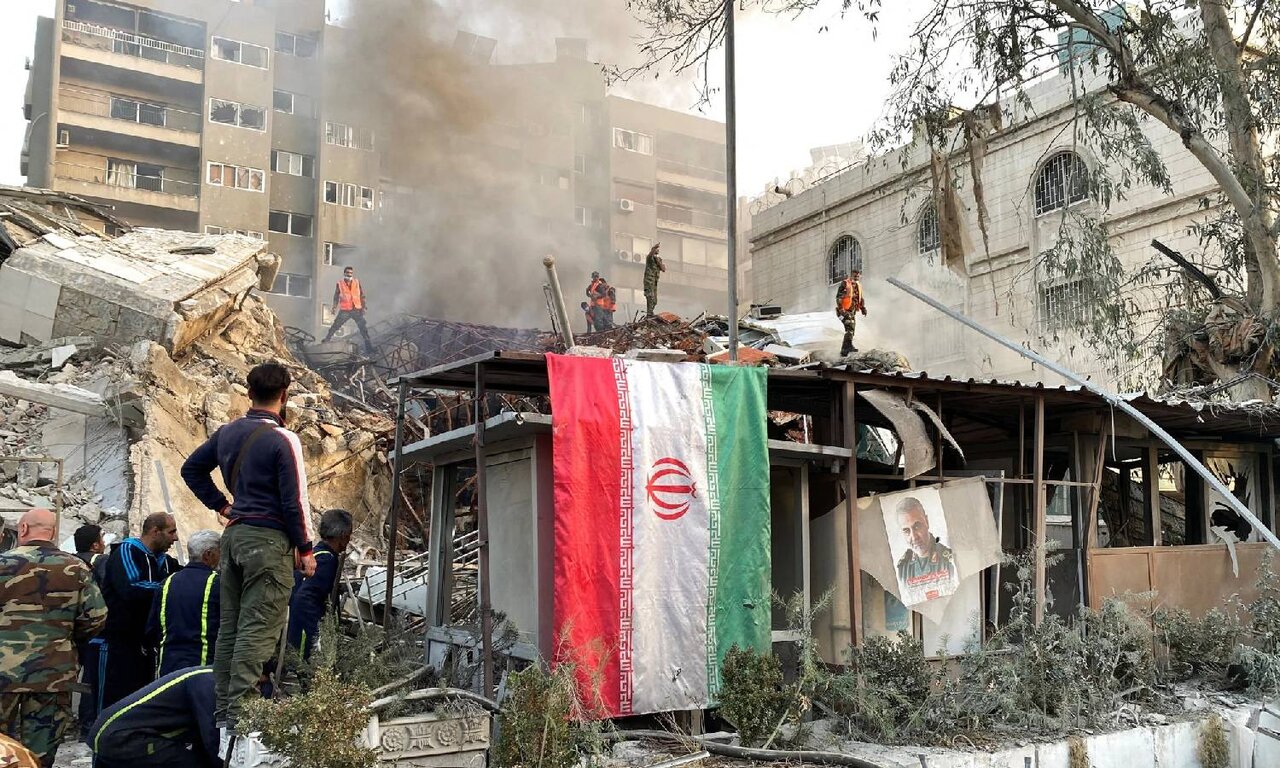What’s awaiting West Asia?
Iran poised to respond to Israeli attack on embassy

TEHRAN – The Monday Israeli attack on Iran’s embassy in Damascus is causing alarm across the world as people fear that the move has put the entire region in a parlous state.
Iran has vowed that its response to the attack will not be paltry. Pundits are of the mind that Tehran is not bluffing and that its response would make the regime regret its unprecedented decision, as warned by the Leader of the Islamic Revolution. “The evil regime of Israel will be punished at the hands of our brave men,” Ayatollah Seyyed Ali Khamenei stated.
These remarks have mounted anxiety in the already unnerved Israeli society. People across the occupied territories especially in the port of Haifa are rushing towards shelters in fear of possible attacks from Iran. Israeli television spoke about the chaos, reporting that people were panicking and emptying supermarkets to prepare for a potential war with Iran. Military spokesman Daniel Hagari telling people that they do not need to “buy generators, stock up on food, and withdraw money from ATMs” did not manage to calm the waters either.
Israeli officials are doing no better than the panicked settlers. According to the Jerusalem Post, they have shut down 28 of the regime’s embassies and consulates across the world, including the ones in Azerbaijan, Bahrain, Egypt, Jordan, Morocco, and Turkmenistan. Envoys have also been advised to avoid showing their faces in public.
Additionally, the regime has canceled the weekend leave for all its soldiers, and footage circulating online shows it is relocating its fighter jets in anticipation of Iran’s destructive response.
Tehran’s response certain
Western countries including the U.S., UK, and France have refrained from condemning Israel’s assault on diplomatic premises which is in breach of the Vienna Convention on Diplomatic Relations. They have instead opted to turn the screw on Iran by accusing it of committing destabilizing acts and telling it to exercise “restraint”. Analysts and legal experts, however, believe that Tehran has the absolute right to respond to the attack.
“Iran has to respond to the attack because if it doesn’t, none of its embassies in the region would be deemed safe in the future. The West is allowing Israel to violate international law and won’t condemn the regime so Iran is forced to take the matter into its own hands, even though it does not wish to escalate tensions in the region and broaden the conflict,” Ali Abdi, an expert on Israel and Palestine, told the Tehran Times.
Despite Israel being on high alert since Monday, Iran has not yet responded to the embassy attack. Israeli media had anticipated a retaliation on Friday, the day Iranians observe as International Quds Day, but it did not materialize. The regime is also struggling to predict the potential nature of Iran’s reaction.
“Iranian officials did not rush an answer, which is commendable. It's important not to act hastily when the enemy is prepared. I believe the response should be unexpected and target something that the regime will find difficult to repair,” Abdi said, adding that he doesn’t think a full-blown conflict between Iran and the U.S. is on the way.
“Washington was aware of the attack. They allowed Israel to target Iran's embassy in exchange for the regime postponing an offensive on Rafah. However, the U.S. is not interested in a war with Iran. I think that if Iran retaliates, Washington will intervene and urge Netanyahu's government to end the exchange of fire.”
Iranian officials have expressed their desire to prevent the situation in the region from escalating further after Tehran's retaliation. However, Iran appears prepared for a potential Israeli response to its actions. Should Israel decide to retaliate against Iran, experts believe Iran will feel compelled to respond with even greater force. "We are fully capable of confronting the Zionist regime," Abdi affirmed.
